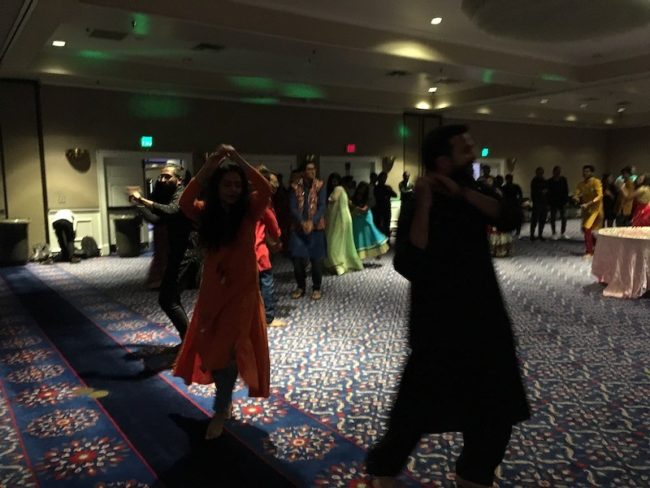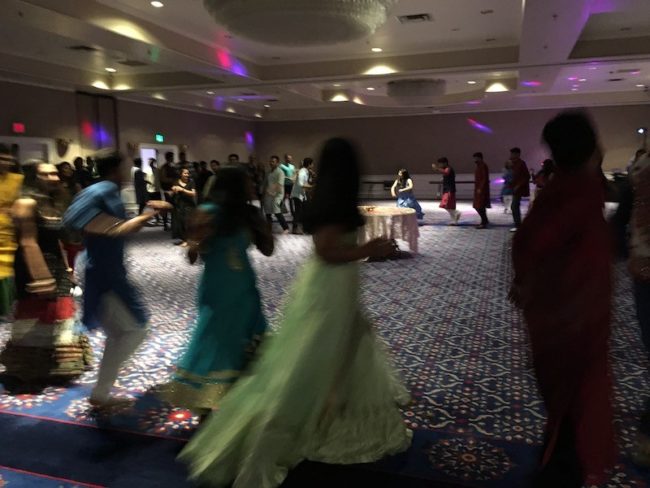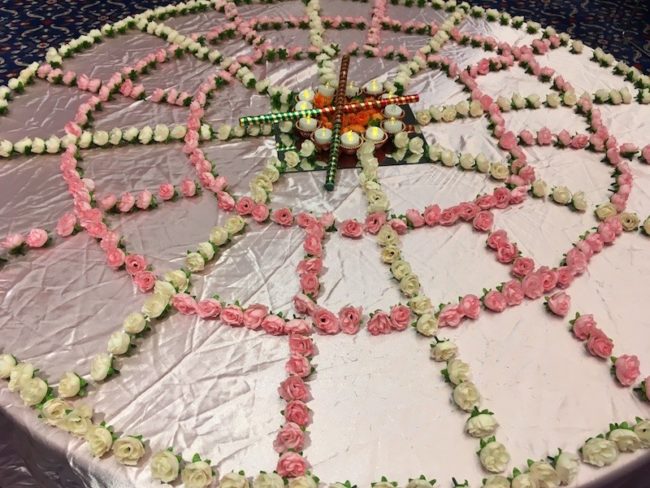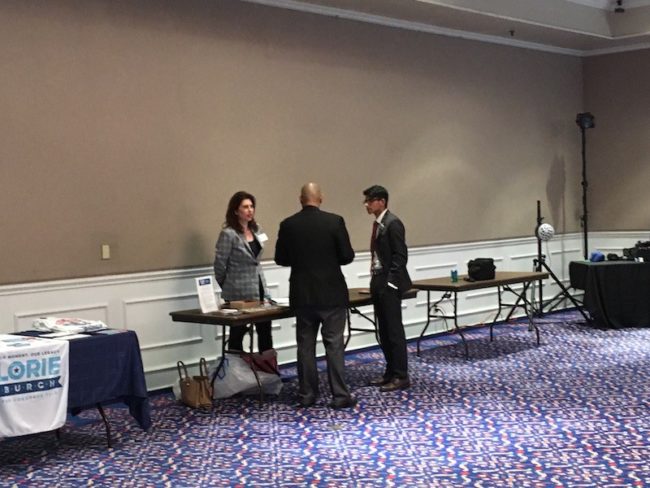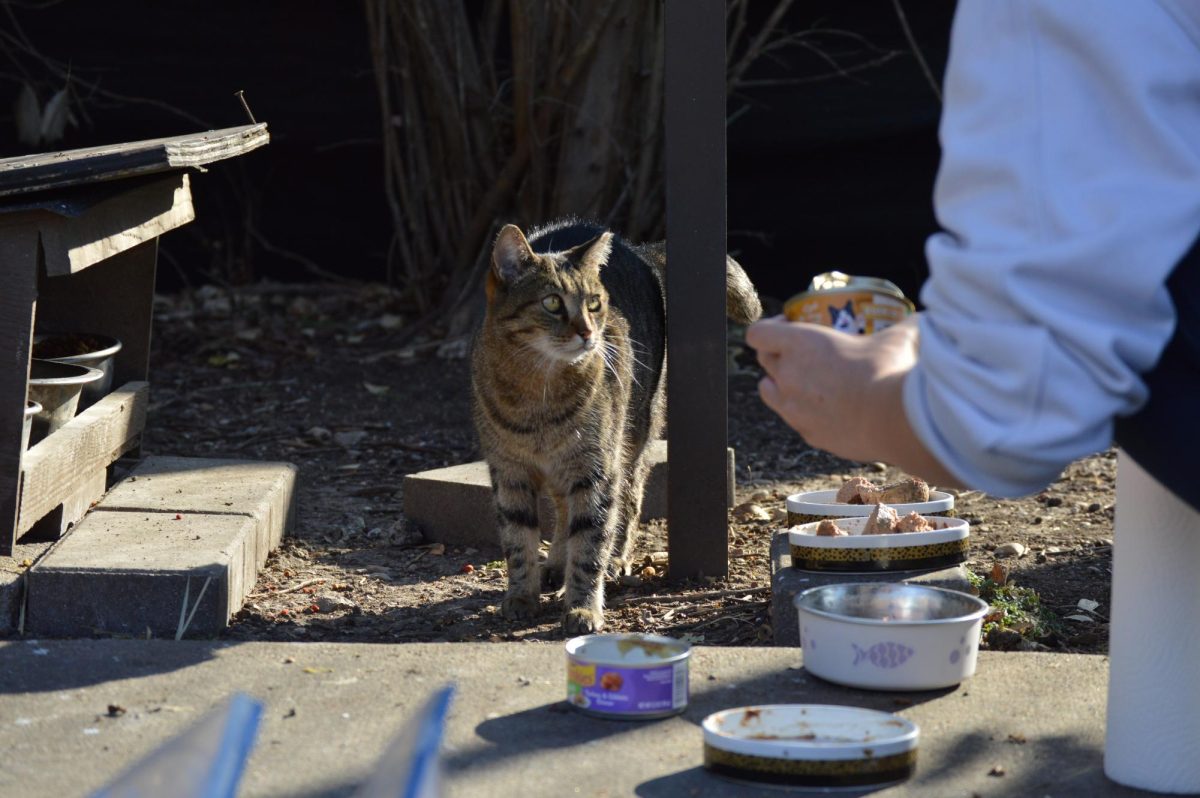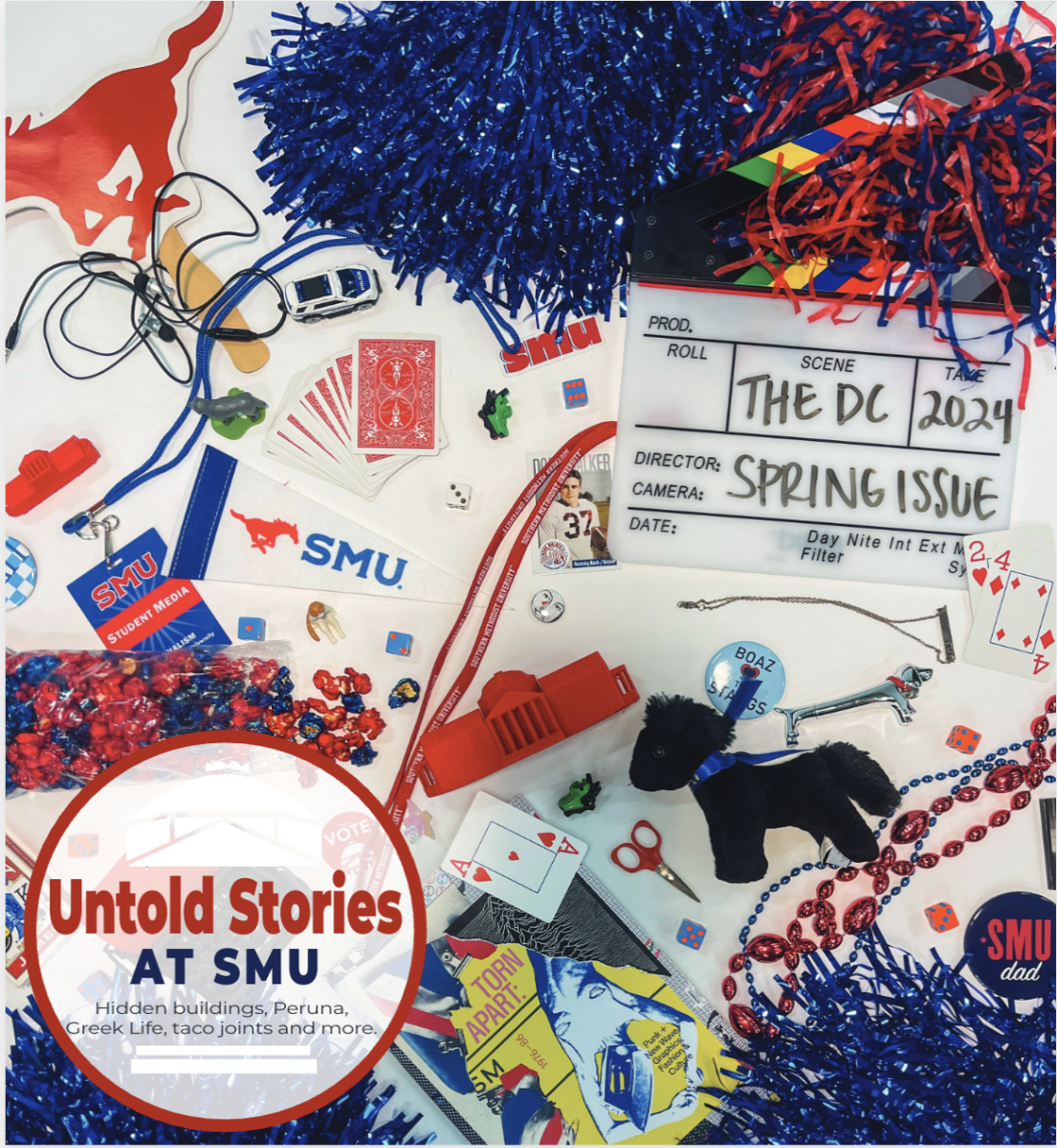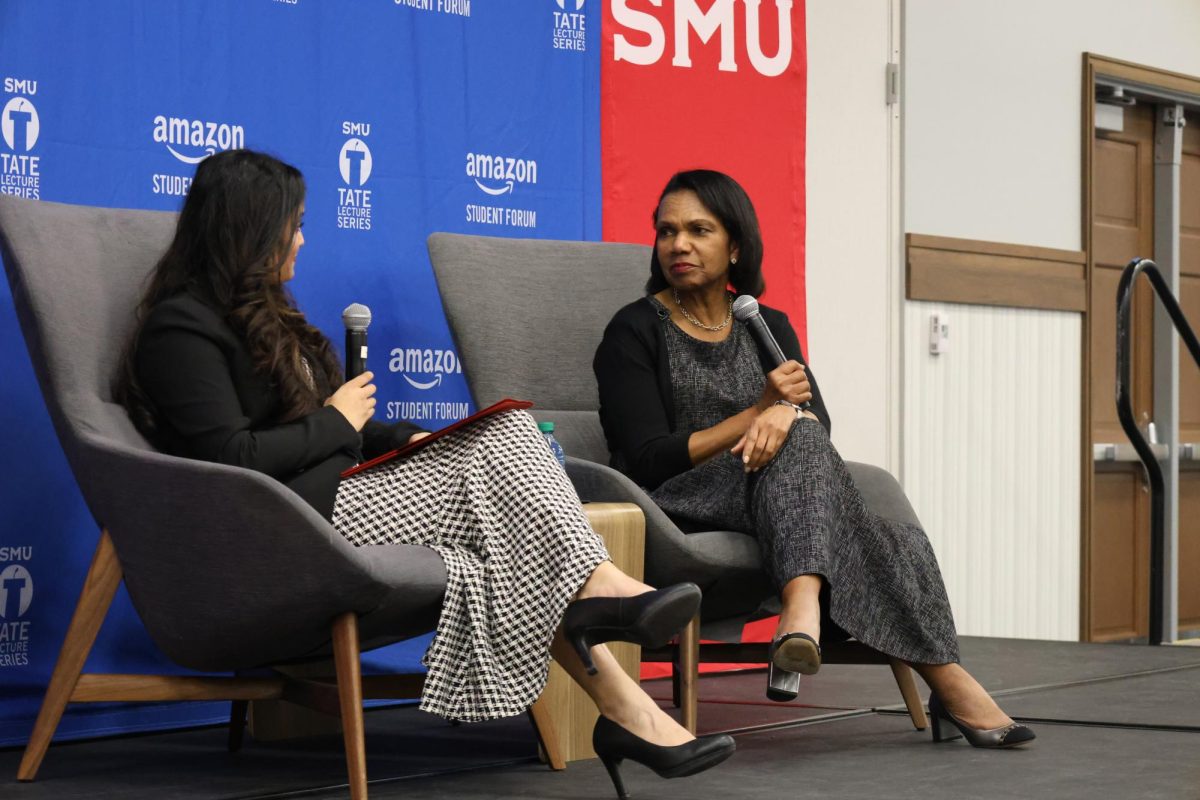On Thursday, Oct 11, SMU’s Tower Center for Political Studies hosted a voter education event at Indian Student Association’s annual Garba event. Garba is an easy-to-learn dance form, which ISA general member Maya Nair described as “very inclusive and easy to follow along.” Attending students were able to meet candidates on the ballot, then have a fun night of dancing.
Visakh Madathil, executive director of Tower Center Student Forum, approached Indian Student Association president Kerman Ahluwalia about having a voter education segment at Garba. Madathil and Ahluwalia believed attaching the voter education idea with a cultural event will draw that demographic to the polls, which is important for voter turnout. Ahluwalia thought it important to underscore the desi community cares about who holds office and what decisions are made.
“It’s good to be involved culturally, but also to be politically aware. To make it a point, for the entire community, that it is important to let your voice be heard and to go out there and vote,” Ahluwalia said.
Maya Nair was a student organizer for this event. A general member of Indian Student Association, Nair hoped to get students engaged and come out to the polls.
“The objective of the event is for students to be able to interact with local candidates attending as well as learning why it’s important to vote in the midterms,” Nair said.
Nair said her biggest challenge was getting respondents for this event.
“We really wanted it to be a bipartisan event–just encourage students to vote regardless of whatever political affiliation they have. But, in planning this event, I contacted at least 15-20 Republican local candidates and none of them got back to me or just couldn’t attend,” Nair said.
The Tower Center for Political Studies is nonpartisan. ISA’s intention for this event was nonpartisan. Maya Nair believes that despite this incidental one-party candidate turnout, the candidates present will be able to speak to the importance of voting.
Students trickled in, enjoyed food, and visited the candidate tables. Among the candidates represented were Beto O’Rourke, a Democrat running for U.S. Senate, and Lorie Burch, a Democrat running for the House of Representatives (Texas Congressional District 3.)
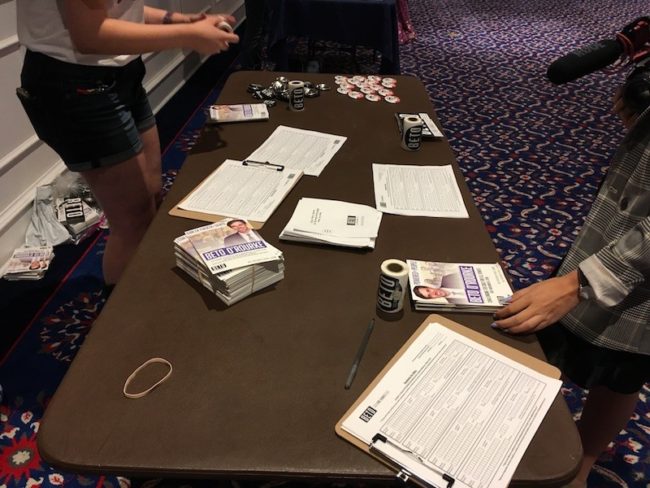
Cara Prentice, representing Burch, said volunteering for the Burch campaign is basically a full time job. However, Prentice said it is worth it because Burch is very inspiring. Prentice said Burch wanted very much to be at Garba to the Polls but had to be present for a conference of the American Business Women’s Association, of which Burch was former national president and her sister will now lead. Burch is a Plano Senior High School alumna, attorney and small business owner.
Among the candidates physically present were Suzanne Smith running for Texas State Board of Education District 12, which pertains to Dallas and Collin County, and R.K. Sandill running for Texas Supreme Court Place 4.
Suzanne Smith, Texas State Board of Education District 12 Candidate
From the Texas State Board of Education candidate, SMU got a pop quiz. Smith presented a concise pop quiz that educated students on education in Texas. The first question was how Texas ranked among education among the 50 states.
“I feel like we’re all doing a bidder’s conference here,” Smith joked before revealing the answer. “So, no, we’re actually number 37. That’s one of the reasons why I’m running; I don’t think 37 is good enough.”
“We’re actually number 37. That’s one of the reasons why I’m running; I don’t think 37 is good enough.”
Smith attended Rockwall High School and the Texas Academy of Math and Science. Having experienced a high quality education in Texas, Smith believes Texas can do a lot better than 37th in education in the union.
Students also learned Texas currently spends less per pupil than it did in 2008. Meanwhile, Massachusetts, number one in education, spends $10,000 per pupil.
“So what happens with public schools, when you continue to chronically under fund public schools, is that you’re not able to pay teachers enough, so they move on to other careers where they can make more money. You have infrastructure issues, so you have textbooks that are falling apart, facilities that are falling apart. You also have an issue of more and more kids going to charter schools and private schools, which continues to make public schools difficult to operate,” Smith described. “So our public school system is vital to the economic success of our state, and it’s incredibly important that we continue to fund it at the right level.”
“So our public school system is vital to the economic success of our state, and it’s incredibly important that we continue to fund it at the right level.”
The SMU audience was most shocked by this: the percentage of high school seniors that can identify slavery as the central issue of the U.S. Civil War. Only eight percent of high school seniors can correctly identify slavery as the central issue of the U.S. Civil War. This percentage is from a study by the Southern Poverty Law Center.
Only eight percent of high school seniors can correctly identify slavery as the central issue of the U.S. Civil War.
This dire statistic was one of the reasons why Smith decided to run. When Smith was in eight grade, she realized only a few of the people featured in her history textbook were women. Smith realized the importance of history textbooks truly representing America’s diversity.
Smith, a UT Arlington adjunct business professor, noted that Texas has enormous buying power. What textbooks Texas buys can influence other states’ decisions regarding which textbooks to buy.
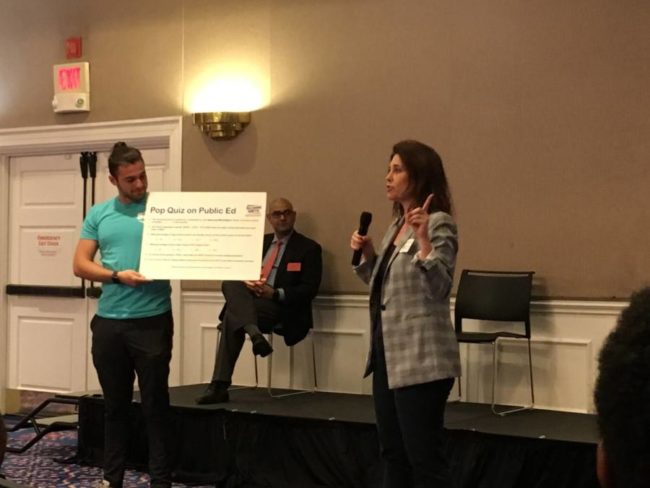
83% of Texans believe education is the key to Texas’ economic success. Smith believes education is a major issue on this year’s ballot.
R.K. Sandill, Texas Supreme Court Place 4 Candidate
R.K. Sandill drove up from Harris County to join SMU at Garba to the Polls. Sandill is currently a district court judge. He is the highest ranking desi official in the state of Texas.
“I’m committed to the desi community. I’m the highest-ranking desi state official in the state of Texas. That sucks, right? I’m a district court judge in Texas. One of 260. There are no other state-elected desi officials. Not a single one. We’re seven percent of the state’s population. We are one of the highest-earning income groups in the state. We have no elected power. None,” Sandill said.
“We’re seven percent of the state’s population. We are one of the highest-earning income groups in the state. We have no elected power.”
Sandill urged SMU students to fill out the entire ballot, and not just vote on the U.S. Senate candidates.
“Don’t walk out; there’s a whole host of other candidates on that ballot. Me– I’ll be number eleven on that ballot. Suzanne–who may be on your ballot depending on where you live,” Sandill said. “But make sure you consider everyone on that ballot. And the reason I tell you to do that is because when the people of this state make policy and make decisions, they don’t make decisions based on you.”
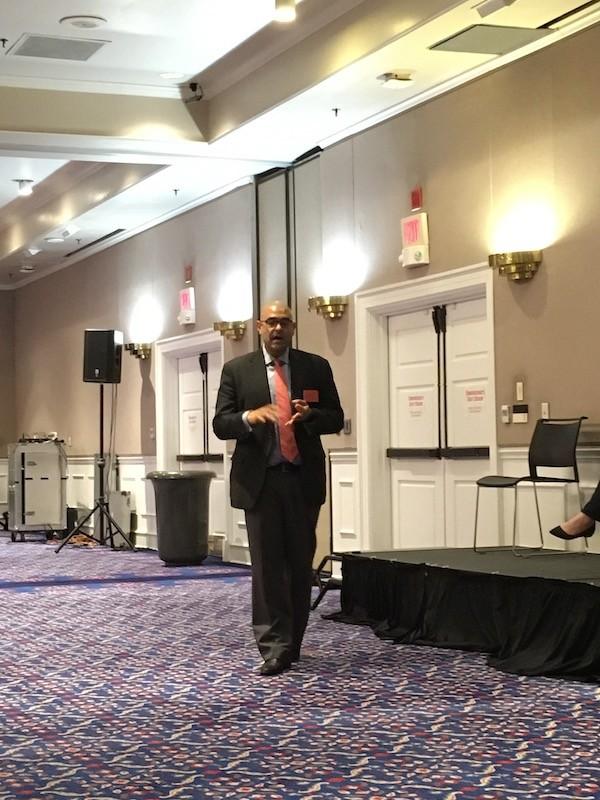
In 2007, Sandill was approached by the Harris County Democratic Party to run for the position of district court judge. Sandill at the time was unsure. As a new father and only seven to eight years out of law school, he was not sure whether he was ready to run for elected office. The judge whom Sandill clerked for told Sandill this was probably a one-time chance to run on request. Sandill did–and won.
“And that’s what we’re in right now: a David-versus-Goliath fight against 25 years of Republican hegemony,” Sandill said.
Afterward
